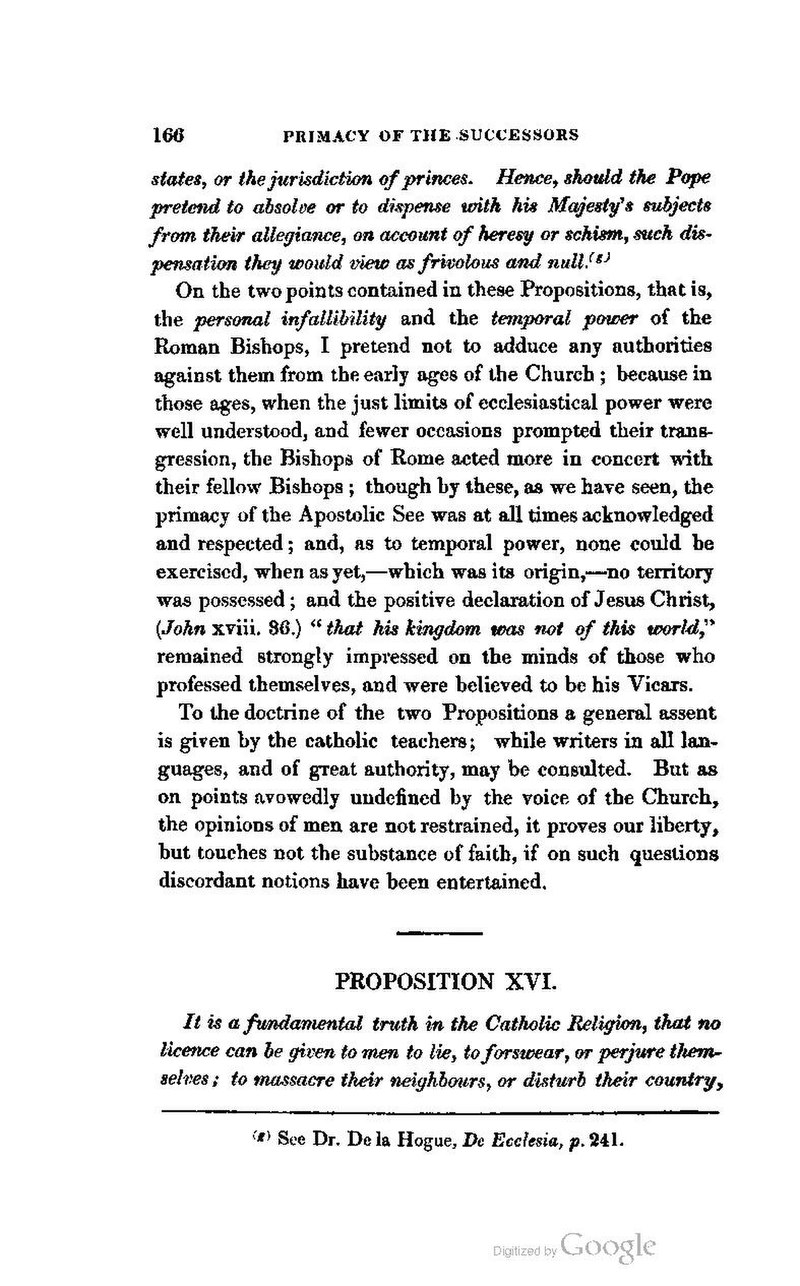states, or the jurisdiction of princes. Hence, should the Pope pretend to absolve or to dispense with his Majesty's subjects from their allegiance, on account of heresy or schism, such dispensation they would view as frivolous and null.
On the two points contained in these Propositions, that is, the personal infallibility and the temporal power of the Roman Bishops, I pretend not to adduce any authorities against them from the early ages of the Church ; because in those ages, when the just limits of ecclesiastical power were well understood, and fewer occasions prompted their transgression, the Bishops of Rome acted more in concert with their fellow Bishops ; though by these, as we have seen, the primacy of the Apostolic See was at all times acknowledged and respected; and, as to temporal power, none could be exercised, when as yet,-which was its origin,-no territory was possessed; and the positive declaration of Jesus Christ, (John xviii. 36.) “ that his kingdom was not of this world," remained strongly impressed on the minds of those who professed themselves, and were believed to be his Vicars.
To the doctrine of the two Propositions a general assent is given by the catholic teachers; while writers in all languages, and of great authority, may be consulted. But as on points avowedly undefined by the voice of the Church, the opinions of men are not restrained, it proves our liberty, but touches not the substance of faith, if on such questions discordant notions have been entertained.
PROPOSITION XVI.
It is a fundamental truth in the Catholic Religion, that no licence can be given to men to lie, to forswear, or perjure themselves; to massacre their neighbours, or disturb their country,
